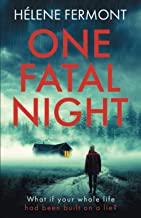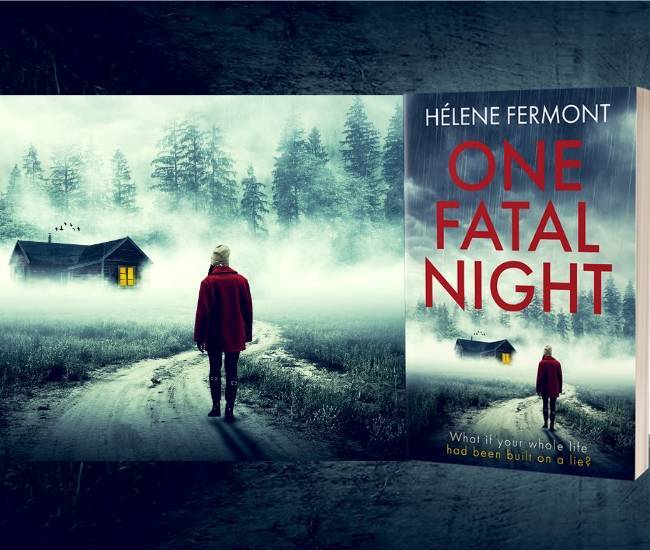One Fatal Night by Helene Fermont
Ten years ago in Bergen, Norway, Astrid’s mother, Ingrid, was murdered in a double homicide — a crime that was never solved. Now a young woman, Astrid begins a quest to uncover the past and discover her mother’s murderer, though her only clues are a few emotionally charged childhood images: vague hints of a dangerous, nameless boyfriend that her mother kept hidden from her. Her first order of business: Head to Oslo and seduce Daniel, a crass businessman whom she suspects was involved.
One Fatal Night by Hélene Fermont (West Harbour Books) is a psychological thriller constructed of many deceptive layers that, page by page, are peeled back to reveal memories, insights and clues to the murder, and eventually, a whole series of grisly murders.
As the story begins, all the main characters seem to be pretending to be someone else, hiding their past, their feelings and their motives. Each one is in some way emotionally scarred or traumatized and hiding behind false personas. Along with Astrid, who lost her mother at the age of ten, there’s Daniel, tortured by his parents as a child, his friend Joel, who has also suffered from childhood abuse, and his brother Aksel. They share a lurking fear of returning to their hometown, where unthinkable crimes have been committed and unthinkable memories are hidden.
UNRELIABLE CHARACTER VIEWPOINTS MAKE FOR A TWISTING PLOT
Throughout the book, we see the world through the lens of characters who have learned to distance themselves from their feelings in order to survive. This subjective approach emphasizes the limited view of each person, suggesting that many key facts are just out of reach for more than one of them, and that the truth is clouded by traumatic memories and agonizing regrets. The revelations of each character’s deep, murky intuitions, yearnings and forebodings combine to create an atmosphere that feels like a bad dream at times. It soon becomes clear that Astrid’s only chance to find out the truth is by confronting her painful past.
Another set of murders has initiated a police investigation, and these new murders seem linked to the murder of Astrid’s mother. The older case is reopened, and the investigation seems destined to force Daniel’s criminal past, and other repressed memories, into the light. Astrid will eventually realize that everything she had come to believe is false, and a killer is coming after her. In a series of unusual twists, we discover many “skeletons in the closet,” some figurative … and some real.
THEMES OF INTERGENERATIONAL TRAUMA
The psychology of One Fatal Night seems to have a European bent, particularly with its Humanistic way of explaining how crimes pass through generations. Crime and violence are traced back to the intergenerational trauma of each character. Graphic descriptions of violence are short, sudden and shocking, but are not as much a major part of the story as the emotional effects surrounding them.
Fermont’s writing has a Scandinavian flavor, with a cadence that might seem unusual at first. But this also adds a poetic quality to the internal character monologues that are among the highlights of the book. In these passages, Fermont’s emotional insight is keen and unwavering. The plot is thoroughly developed through such deep, raw feelings, while the sleuthing and police procedural details are given less attention, as befits the character-focused style of storytelling.
A suspenseful mystery with deep insight into the minds of its characters, One Fatal Night is perfect for fans of fast-paced, intense stories that can be consumed in a single sitting — such as the course of one night.





